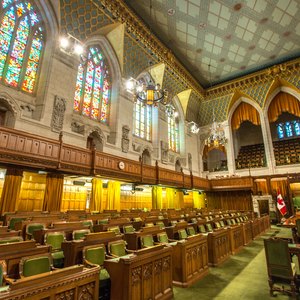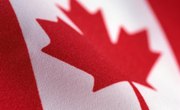
Canada currently occupies the 20th position within the 2021 International Tax Competitiveness Index Rankings, which measure the ease of paying taxes worldwide. That means it has a well-structured code that its taxpayers can easily comply with. And that puts it ahead of both the U.S. and the U.K.
If you are interested in living or working in Canada but are unsure of its taxation policies, it would be best to understand the types of taxes in Canada. And then, you can decide whether the total tax in Canada is affordable for you or not.
Location and Government Affects Taxation in Canada
If you live in Canada, expect to pay taxes at three levels. These include municipal, provincial and territorial and federal government taxes. Therefore, your total tax in Canada will partly depend on where you live.
Also, some territories and provinces charge more taxes than others. For example, Nova Scotia has the highest marginal tax rate of all of Canada’s provinces. On the other hand, Nunavut has the lowest.
The Canada Revenue Agency (CRA )is responsible for administrating tax policies, collecting revenue from taxes and delivering benefits programs and tax credits at federal and provincial levels.
Tax Categories in Canada
Canada’s taxes fall under four broad categories. These include:
- Personal income tax
- Corporate tax
- Goods and services tax (GST)
- Excise tax
1. Personal Income Tax
The federal income tax in Canada is a progressive tax that you will pay on your earnings, dividends and capital gains while claiming deductions where permitted. Generally, the Canadian tax percentage on paychecks varies from 15 to 33 percent. If you earn more income, you will be placed under a higher tax bracket and thus, pay more taxes.
Even though capital gains and Canadian dividends also attract taxes, their rates are significantly lower than what you would pay for other kinds of income.
In 2022, those earning:
- $50,197 or less will pay 15 percent
- $100,392 or less will pay 15 percent for the first income bracket and an additional 20.50 percent for the remainder
- $155,625 or less will pay 15 and 20.50 percent for the first two income brackets and an additional 26 percent for the remainder
- $221,708 will pay 15, 20.50 and 26 percent for the first three income brackets and 29.38 percent for the remainder
- More than $221,708 will pay 33 percent for the remainder after paying the designated taxes for the first four income brackets.
If you are a non-resident of Canada but receive certain payments from Canada, such as management fees, dividends and royalties, the payer may withhold 25 percent of your earnings for taxes.
2. Corporate Tax
Corporate taxes are those that businesses and self-employed people pay to the various levels of government. After various reductions, it ranges from about nine percent for small businesses to 28 percent for large corporations. And it is imposed on all Canadian residents and subsidiaries of foreign entities.
It is worth noting that some provinces and territories charge higher corporate taxes, while others charge lower rates. For example, in Newfoundland and Labrador, the effective corporate tax rate ranges from three to 15 percent. On the other hand, the same tax ranges from zero to 12 percent in Yukon.
3. Goods and Services Tax (GST)
If you live in Canada, you will likely pay the federal GST, imposed on most of the products and services manufactured and sold in the country. It is also known as a consumption tax.
The average GST rate is five percent, applied at various levels of the value addition process. However, some products, such as feminine hygiene products, medical assistive devices and basic groceries, are zero-rated, so you will pay zero percent GST taxes on them.
Others are exempt from this kind of taxation. The latter category includes financial, educational, healthcare and residential real estate property.
4. Excise Tax
Excise taxes refer to Canada’s internal taxes you may need to pay on specific goods or services. These include tobacco and cannabis products and beer, wine and spirits imported to or made in Canada. And they also vary based on location.
In addition, fuel used in vehicles and equipment like air conditioners also attracts this kind of tax. And it is payable during the production process, when the goods are delivered to the buyer, or when the goods are imported.
Some excise taxes are usually fixed, while others vary depending on the product price and quantity of goods or services. For example, for every liter of gasoline, the federal government will charge an excise tax of 10 cents. On the other hand, diesel will attract a similar tax of four cents per liter.
Sometimes, businesses will pay the tax by purchasing the license to operate according to the Excise Act. For example, you should expect to pay anywhere from $5,000 to $2,000,000 when you enter into a bond with the government to run a business that deals with alcoholic products.
It’s safe to say that the total tax in Canada is not fixed. Where you are, what you do, which kinds of income you earn and the products or services you buy or sell will determine the final amount you pay to the federal, provincial and municipal governments.
References
- TaxFoundation.Org: International Tax Competitiveness Index 2021
- Canada.Ca: Canada Revenue Agency
- TaxTips.Ca: Canada - Federal 2022 and 2021 Tax Brackets and Marginal Tax Rates
- Dentons: Global tax guide to doing business in Canada
- Canada.Ca: Corporation tax rates
- PWC: Consumption taxes
- Canada.ca: Excise Taxes
Writer Bio
I hold a BS in Computer Science and have been a freelance writer since 2011. When I am not writing, I enjoy reading, watching cooking and lifestyle shows, and fantasizing about world travels.

